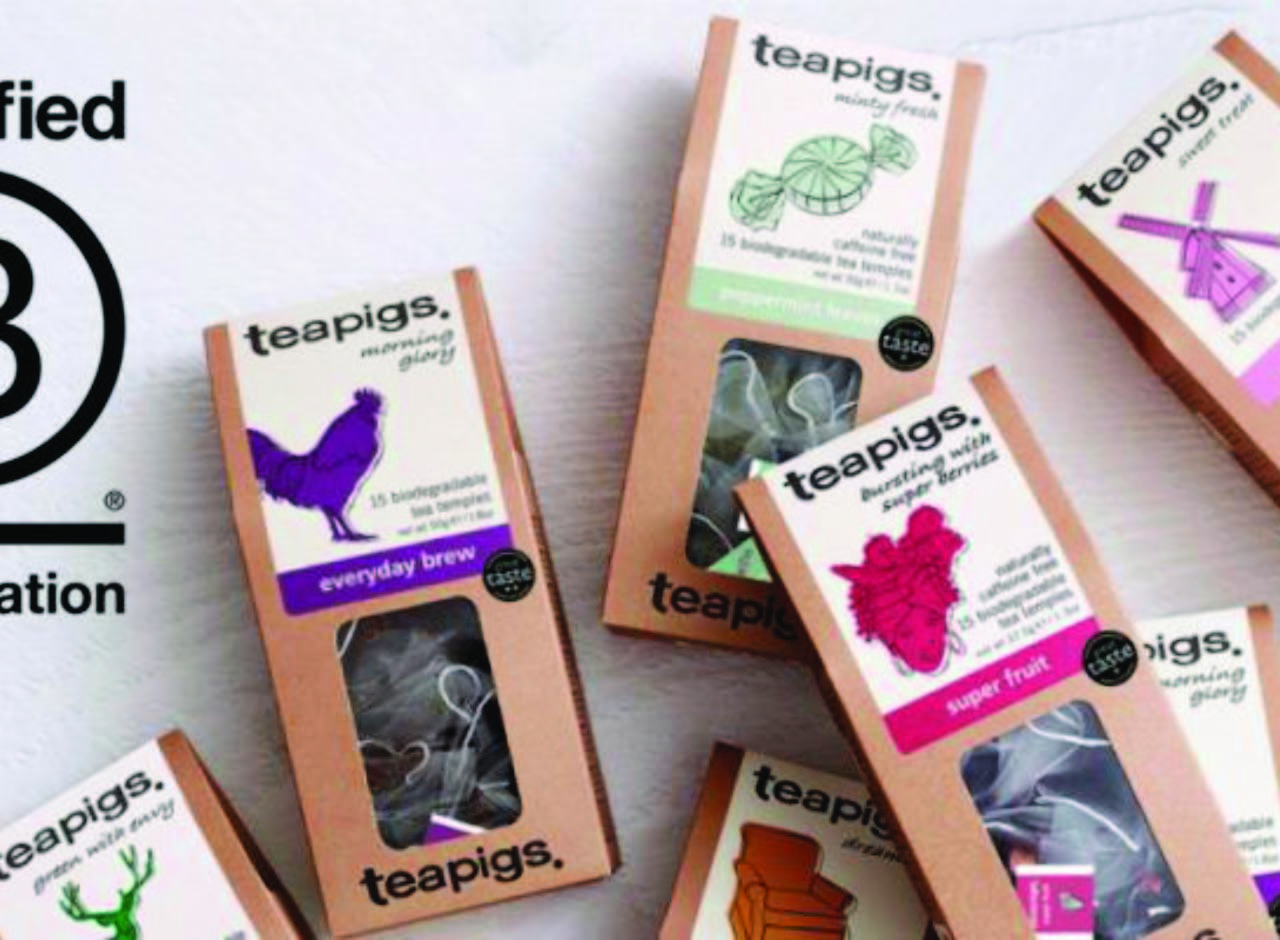Posted by admin on January 6, 2020 · Leave a Comment

A proposal to ban the use of words such as sausage and burger to describe foods that don’t contain meat have been rejected.
Defra Minister of State, Zac Goldsmith MP, has written to the EU Energy and Environment Sub-Committee about a proposal from the European Parliament to ban the use of words like ‘sausage’ and ‘burger’ to describe foods that don’t contain meat, saying that he agrees that vegetarian food names are already clear. In his letter, he found that the Government should not put unnecessary barriers in the way of new foods being put on the market.
In June and July, the EU Energy and Environment Sub-Committee investigated a proposal from the European Parliament’s Committee on Agriculture and Rural Development to restrict the use of descriptions like sausage, burger and steak to apply only to products containing meat and not to vegetarian alternatives. The Committee wrote to the Government with concerns that the proposal did not have the evidence to justify it, would be costly for vegetarian businesses, and could put people off reducing their meat intake for health or environmental reasons.
The Minister has now replied to the Committee, acknowledging that: “Vegetarian sausages and burgers have been on the UK and European market for many years now and where they are clearly and honestly labelled, as the large majority are, consumers are not at all misled.”
He also agreed that existing legislation protects consumers from misleading information, and that it is important to avoid creating barriers for new foods.
The Committee has replied to the Minister and has asked for more details on the Government’s position if the proposal is put forward during negotiations on the Common Agricultural Policy reform.
Posted by admin on December 28, 2019 · Leave a Comment

There has been growing investment from food and personal care companies this year in circular economy, according to Ecovia Intelligence.
The circular economy refers to a system in which materials and products are reused and recycled, rather than entering waste streams. Realising its importance, the EU introduced its circular economy strategy in 2018, which plans to have a 65 per cent target for recycling and reuse by 2035.
According to Ecovia Intelligence, growing consumer opposition to single-use plastics is making the food industry focus on packaging. The move to a circular economy also involves the upcycling of ingredients, with new enterprises creating products using food waste (by-products). In the personal care industry, there is also a shift towards sustainable packaging materials, with ocean plastic becoming established.
Ecovia Intelligence expects to see more such initiatives involving sustainable packaging materials, upcycling and recycling of nutrients, as well as new retail formats. However, consumer behaviour is likely to be a major barrier, the analysts found, with consumers being so accustomed to being able to frequently buy low priced products that are easily disposable.
The circular economy will be featured in upcoming events organised by Ecovia Intelligence.
Posted by admin on December 19, 2019 · Leave a Comment

Teapigs, has become the latest company to achieve B-Corp certification.
B-Corp analyses a company’s impact on its workers, customers, community, and environment and to become certified, companies are assessed and audited to meet the highest standards of social and environmental performance, accountability, and transparency.
Louise Cheadle, teapigs Co-founder, commented: “We’ve always tried to do the right thing, from having plant-based tea temples, giving back to tea growing communities through our ethical scheme and striving to make teapigs HQ a great place to work – so joining the B-Corp community felt like a natural step for us.
“As a business, we have a responsibility to use our platform and product as a source of good. We’re incredibly excited to join over 2,500 brands globally who share this vision, and we’re certain that this is the start of something big. We’ve always done our best to be the greenest tea company, to give back to the communities that bring us our tea and the community on our doorstep in Brentford and to make teapigs a great place to work. Having B-Corp certification ensures we will continue to meet high standards and keep doing better and better things.”
Posted by admin on December 12, 2019 · Leave a Comment

Worrying data from a coalition of organisations has revealed that a quarter of all food and over a third of fruit and vegetables consumed in the UK contain pesticide cocktails, with some items containing traces of up to 14 different pesticides.
The report, The Cocktail Effect, released by PAN UK and the Soil Association, details evidence of pesticide cocktails in the environment, with mixtures of as many as 10 different chemicals found in UK soil and water. The report warns that post-Brexit trade deals could lead to a rise in the number of pesticides authorised for use in the UK.
Josie Cohen, from PAN UK, commented: “Because of the overuse of pesticides in UK agriculture, we are constantly exposed to a wide array of different chemicals, which can interact to become more toxic, creating a ‘cocktail effect’. Yet the Government continues to assess the safety of just one pesticide at a time. The truth is, we simply have no idea of the human health and environmental impacts of long-term exposure to hundreds of different pesticides.”
The report’s key findings include that in 2017, 87 per cent of pears, 64 per cent of apples and a quarter of bread contained pesticide cocktails. The Government’s testing data for 2018 shows residues of 157 different pesticides, including 63 known, possible or probable carcinogens, and 41 suspected endocrine disruptors. The report also reveals that 67 per cent of the soil tested contained pesticide cocktails, as did two-thirds of samples taken from seven river catchments.
Rob Percival, from the Soil Association, added: “The UK Government has committed to reducing pesticide use, but the support farmers need to transition away from pesticides simply isn’t in place. The Government urgently needs to support farmers to adopt nature-friendly, agroecological approaches that don’t rely on pesticides, including organic, to better protect both human health and the natural world. Brexit poses real threats to food and farming, but it also provides an opportunity to do things differently, if the right policies and legislation are put in place.”
Posted by admin on December 6, 2019 · Leave a Comment

Research has found that retailers concerned about food shortages due to Brexit related disruption has led to record levels of stockpiling.
Shopping app, Ubamarket, found that 30m Brits believe Brexit will increase the price of food and produce in supermarkets
This comes after the latest survey of Britain’s retail industry, conducted by the CBI, shows that shops are braced for Brexit disruption and the peak Christmas shopping season. Although retail sales figures this year have declined by 10 per cent, retailers have continued to stockpile in preparation for the new deadline. Ubamarket conducted nationally representative research across a sample of over 2,000 UK adults, revealing Brits feel Brexit is going to affect food prices on their weekly shop:
■ 30m Brits – 59 per cent – believe that Brexit will increase the price of food and produce in supermarkets.
■ 57 per cent of Brits – 29.5m – believe that Brexit will make European goods in supermarkets considerably more expensive.
There is a concern amongst many UK shoppers regarding the prices and availability of products, with many retailers worrying that businesses will turn to supermarkets as they arguably have the most sophisticated supply logistics.
Will Broome, CEO and Founder of Ubamarket, commented: “A no-deal Brexit, in and of itself, is not the issue with food at this moment in, however, the prolonged deadline and the uncertainty around a deal, tariffs, imports and exports and checks at borders may cause alarm for both retailers and customers. Food supply chains are deep and complex, and retailers are working very hard at ensuring that food, particularly fresh food, is not in short supply after Brexit. However, there may be some short-term pain while checks at ports are sped up and any no-deal Brexit issues are ironed out.
“For retailers, there are obviously concerns from all sides, and as an industry, we need to ensure that customers are fully informed and aware of any potential delays and shortages. It is clear that there are supply chain concerns from the industry and retailers are working to try and alleviate any potential issues, however, they need greater assurances from politicians in both the UK and in Europe.”


 Organic & Natural Business magazine
Organic & Natural Business magazine




